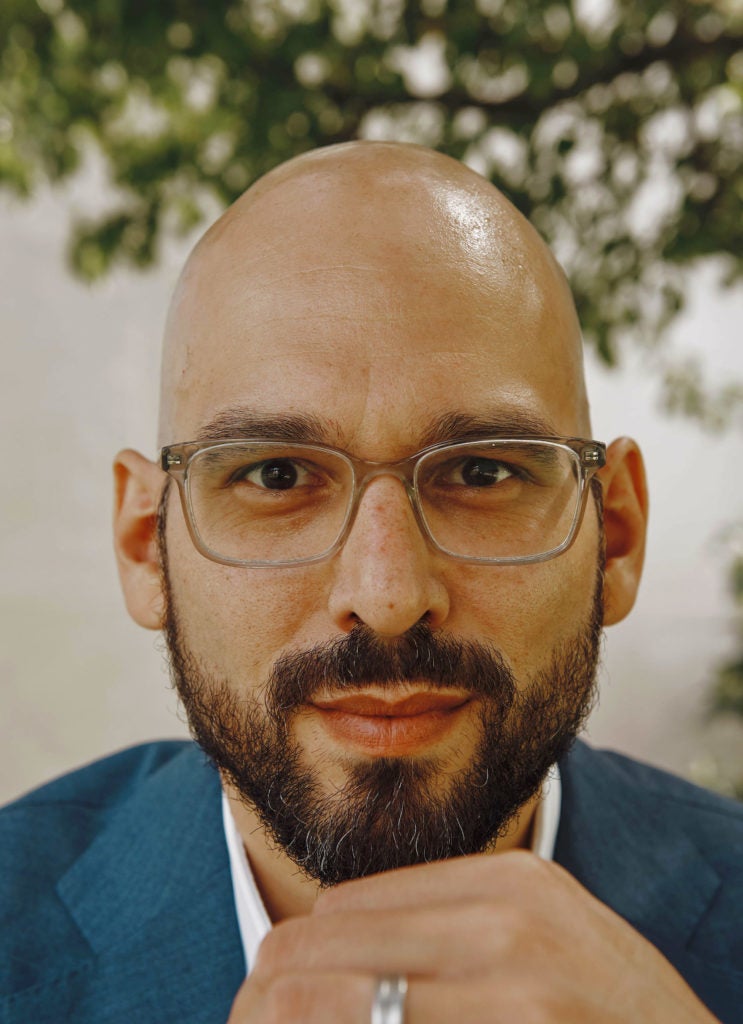
Andrew Manuel Crespo ’08, Morris Wasserstein Public Interest Professor of Law, has been elected a member of the American Law Institute.
Describing itself as “the leading independent organization in the United States producing scholarly work to clarify, modernize, and improve the law,” the American Law Institute drafts, discusses, revises, and publishes Restatements of the Law, Model Codes, and Principles of Law, which are influential in the courts and legislatures, as well as in legal scholarship and education.
Crespo was one of 59 new members elected this year, including 13 other Harvard Law School graduates:
- Reginald J. Brown ’96, a partner at Kirkland & Ellis;
- Jorge L. Contreras ’91, a professor at the University of Utah, S.J. Quinney College of Law;
- Michael C. Duff ’95, a professor at the University of Wyoming College of Law;
- Russell D. Feingold ’79, president of the American Constitution Society and U.S. senator from Wisconsin from 1993 to 2011;
- David S. Han ’05, a professor at Pepperdine University, Caruso School of Law;
- Robert J. Jackson, Jr. J.D/M.P.P ’05, a professor at New York University School of Law and former commissioner of the U.S. Securities and Exchange Commission from 2018 to 2020;
- Peter Karanjia LL.M. ’98, chair of DLA Piper’s Administrative Law Appellate practice;
- Laura M. Kim ’00, a partner at Covington & Burling;
- Jon Laramore J.D/M.P.P ’83, executive director of Indiana Legal Services;
- Richard C. Schragger ’96, a professor at the University of Virginia School of Law;
- Joseph Thai ’98, a professor at the University of Oklahoma College of Law;
- Lisa A. Tucker ’95, a professor at Drexel University’s Thomas R. Kline School of Law;
- Pierre-Hugues Verdier LL.M. ’04 S.J.D. ’10, a professor at the University of Virginia Law School.
Crespo, who joined the Harvard Law faculty in 2015 and was named a professor of law in 2019, teaches criminal law and procedure and serves as the faculty director of the Institute to End Mass Incarceration. His research and scholarly expertise center on the institutional design, legal frameworks, and power structures of the American penal system.
His scholarship has been honored by the Association of American Law Schools and profiled in The New York Times, with his leading articles appearing in the Harvard Law Review, the Columbia Law Review, and the Yale Law Journal. He is the author, with University of Chicago Law Professor John Rappaport ’06, of “Criminal Law and the American Penal System,” a forthcoming casebook that recasts the traditionally required criminal law course as a class about the role law and lawyers have played in building and sustaining the pathologies of the modern American penal system.
In April, President Joseph Biden appointed Crespo to serve on the Presidential Commission on the Supreme Court of the United States. The 36-member panel, which includes a total of seven HLS faculty members and nine alumni from across the political spectrum, was tasked with studying the origins of the debate around Supreme Court reform, the Court’s role in the American constitutional system, and the legality and desirability of various reform proposals.
In addition, Crespo is a member of the Academic Advisory Board of the American Constitution Society and serves on the Standing Advisory Committee on the Rules of Criminal Procedure for the state of Massachusetts.
Prior to his academic career, Crespo served as a staff attorney with the Public Defender Service for the District of Columbia, where he represented more than 100 adults and juveniles charged with serious felonies, ranging from armed robberies, to burglaries, and homicides. As a member of the Harvard Law School faculty he continues to be active in litigation, authoring merits stage and amicus briefs on various issues, often in close collaboration with his students.
While a student at HLS, he served as president of the Harvard Law Review, the first Latino to hold that position. Following law school, he served for three years as a law clerk, initially to Judge Stephen Reinhardt of the U.S. Court of Appeals for the Ninth Circuit, then to Associate Justice Stephen Breyer of the U.S. Supreme Court, and finally to Associate Justice Elena Kagan ’86 during her inaugural term on the Court.